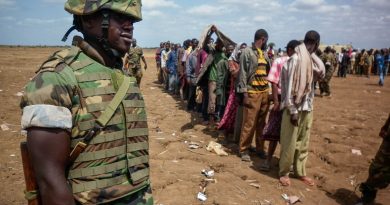Maduro’s Political Survival Comes Closer to an End
Luisa Chainferber
Staff Writer
After the Venezuelan leader Mr. Maduro refused to accept new presidential elections, the list of countries that have recognized the opposition leader Guaidó as Venezuela’s interim president grew, says CNN.
According to BBC, several states in Europe now support Guaidó, including the United Kingdom, Spain, France, and Germany. These countries seek to persuade other members of the European Union to follow this recognition, however, some states are still concerned about the future implications of accepting a self-declared leader.
Due to Venezuela’s humanitarian crisis, it is hard to gather accurate data regarding domestic public opinion on the presidential turmoil, reports CBC. Approximately 90 percent of Venezuelans are below the poverty line and fight for daily survival, so the interest in political change is small. Nonetheless, a poll from November indicates that the majority of Venezuelans support negotiations and Maduro’s exit from office, whereas a minority of citizens support Mr. Maduro’s government.
The Wall Street Journal, reports that despite the wide international acceptance of Guaidó as interim president, not all opposition leaders expected that Guaidó would declare himself president. Some parts of the opposition feared that Guaidó’s nomination as president would worsen negotiations with Mr. Maduro and extend the suffering of millions of Venezuelans that lack access to food and medicine.
In addition, the United States has made diplomatic moves to demonstrate its support of Guaidó as Venezuela’s president, says The Wall Street Journal on a later report. These actions include the revocation of U.S. visas from Venezuelan government officials that serve Mr. Maduro and a push for the entry of U.S. humanitarian aid in Venezuela. According to the U.S. Agency for International Development, the U.S. sought to provide over $20 million in aid.
However, tensions increased even more as Mr. Maduro blocked the entry of U.S. aid that arrived at the Colombian border, reports Voice of America. Mr. Maduro ordered Venezuelan security forces to use shipping containers and a fuel tanker in order to block the Tienditas Bridge that separates Colombia and Venezuela. Several human rights activists came to the border crossing and requested Mr. Maduro to accept the emergency aid.
The United Nations joined the concerns of these human rights activists and warned against the politicization of humanitarian aid, says Reuters. While Mr. Maduro states that Venezuelans are not “beggars,” the spokesperson for United Nations Secretary-General Antonio Guterres said that humanitarian aid should not be used for political gains but rather should follow “the principles of humanity, neutrality, impartiality and independence.” The U.S. State Department joined these concerns and requested the Venezuelans security forces to allow the aid to enter Venezuela.
In fact, the U.S. could still deliver the aid without Mr. Maduro’s consent if there is approval from the United Nations Security Council. However, this approval is hard to get because Russia, as a permanent member, is likely to block this move, reports Reuters.
As Mr. Maduro increasingly loses political force, he relies on protection and support from Cuban forces, reports ABC News. This reliance on Cuban forces happens simultaneously with Guaidó’s continuous calls for Venezuelan military officers to abandon their loyalty to Mr. Maduro in exchange for amnesty. The expectations are that if more members of the military leave Mr. Maduro’s side, he could be forced to leave the country.


